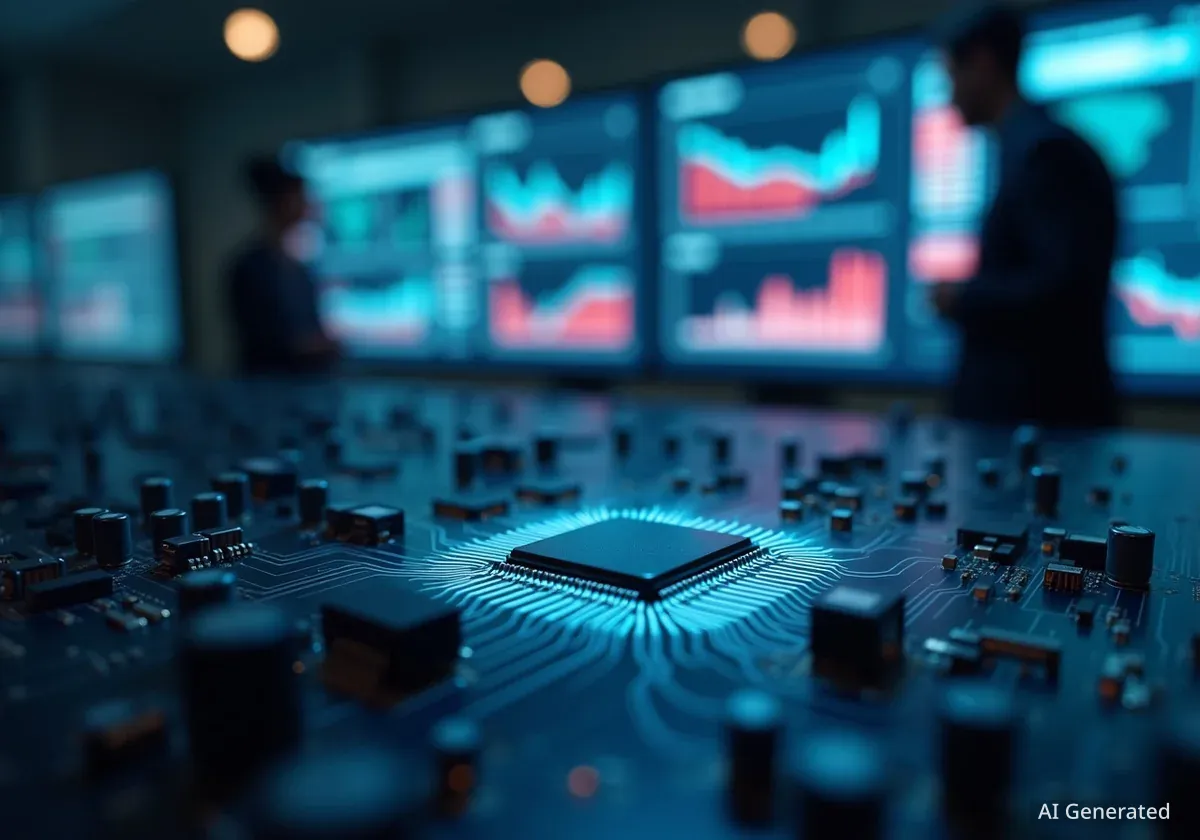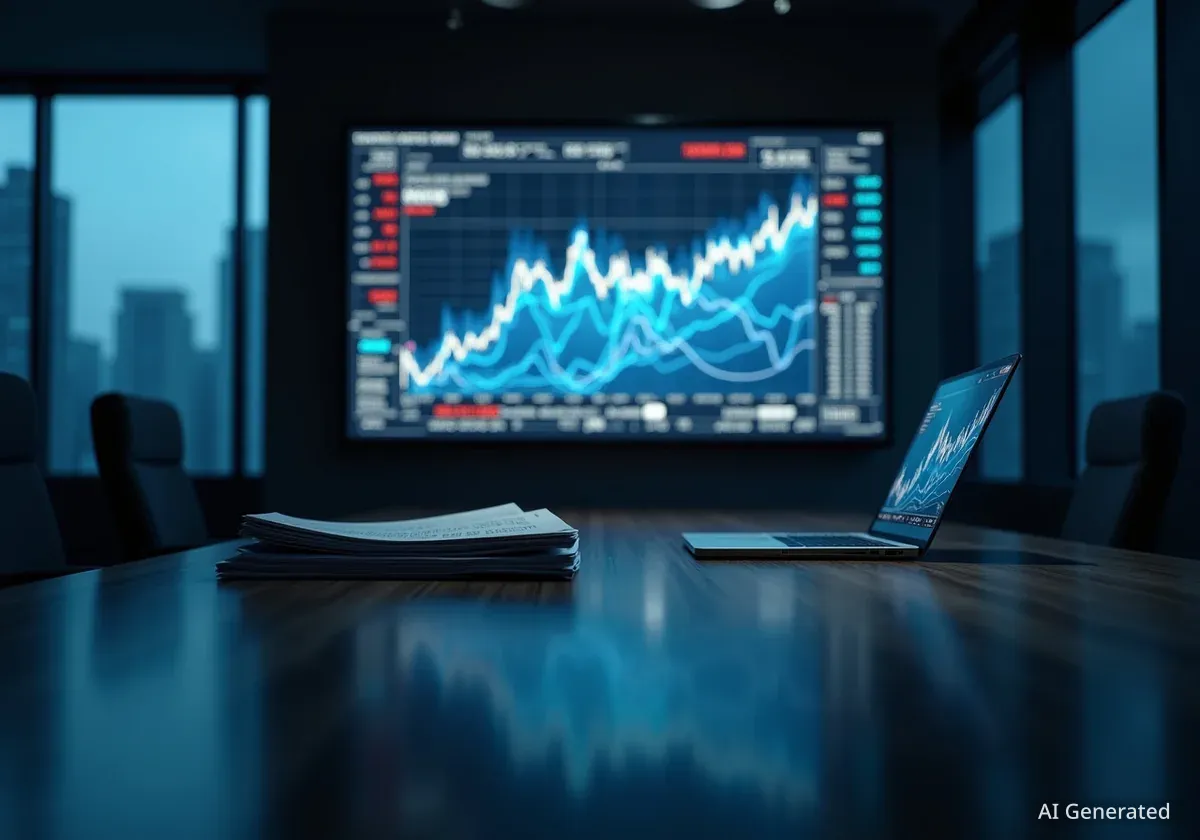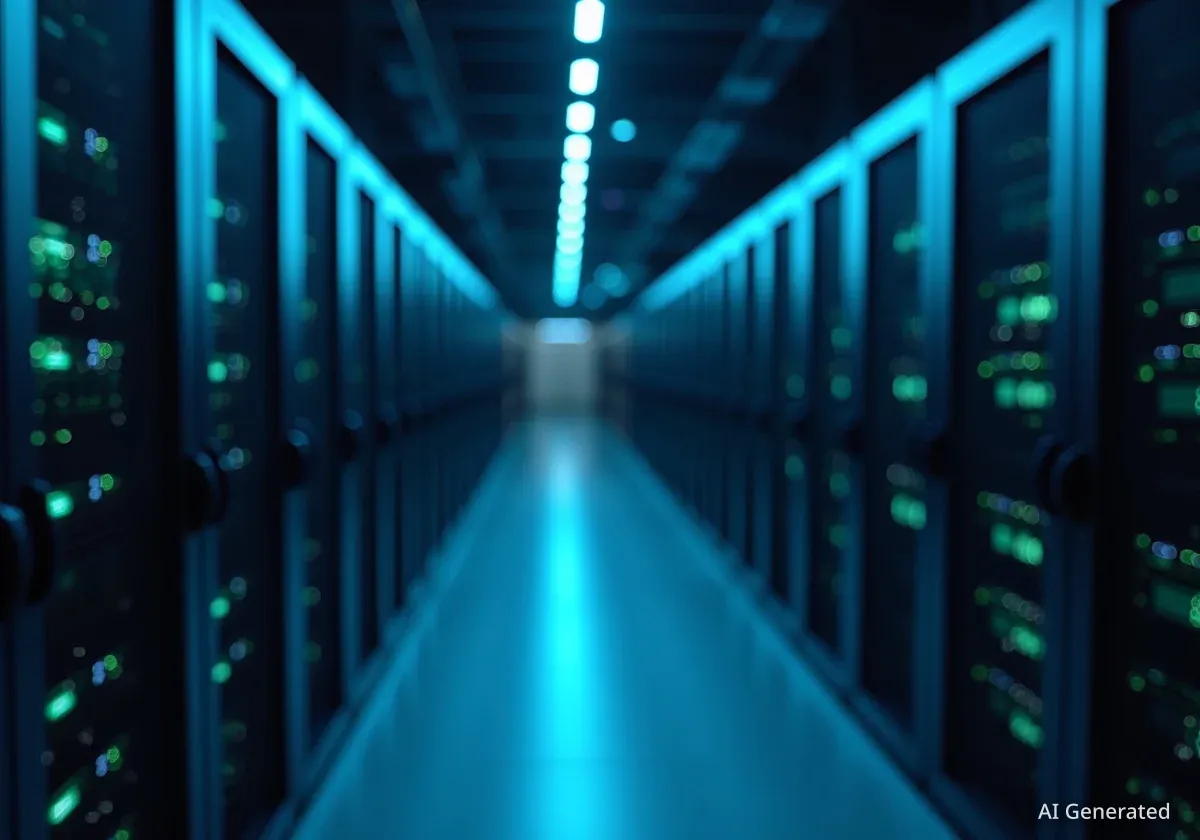Coatue Management, a hedge fund led by Philippe Laffont, has significantly altered its semiconductor holdings, according to recent regulatory filings. The fund has sold a large portion of its shares in Advanced Micro Devices (AMD) and initiated a substantial new position in chip designer Arm Holdings, signaling a strategic shift in its outlook on the artificial intelligence hardware market.
Key Takeaways
- Coatue Management has reduced its holdings in AMD by 89% since mid-2023, including a 53% cut in the most recent quarter.
- The fund established a new position in Arm Holdings, projecting its market capitalization could exceed $780 billion by 2030.
- This move comes after Coatue also trimmed its Nvidia stake by 77% since early 2023, though it bought back some shares recently.
- The investment in Arm reflects a long-term bet on the growing importance of energy-efficient chip architecture in data centers.
Coatue's Strategic Shift in Chip Stocks
Hedge funds provide a window into the strategies of top investment managers through their required 13F filings with the U.S. Securities and Exchange Commission. One closely watched fund is Coatue Management, which has a strong performance record. Based on public filings, its equity portfolio outperformed the S&P 500 index by approximately 95 percentage points over the three-year period ending in June.
Recent disclosures reveal a significant change in the fund's semiconductor investments. Manager Philippe Laffont has been systematically reducing exposure to GPU manufacturers that have seen massive gains during the AI boom, while placing a new, long-term bet on a different kind of chip company.
Reducing Exposure to GPU Giants
Coatue Management had previously made a significant investment in Advanced Micro Devices (AMD) in late 2022 and early 2023. At its peak, AMD was one of the fund's largest holdings. However, since the middle of 2023, Laffont has sold off 89% of that position. In the most recent quarter alone, the fund trimmed its remaining AMD stake by another 53%.
This trend extends to AMD's primary competitor. Coatue also cut its investment in Nvidia by about 77% since early 2023. While the fund did add a small number of Nvidia shares back in the last quarter, its overall strategy shows a clear move away from the high-flying GPU stocks that have dominated the AI narrative.
Context on AMD's Recent Performance
The timing of Coatue's sales of AMD stock preceded a strong performance period for the chipmaker. Since the end of June, AMD shares have outperformed Nvidia's. This was partly driven by a major agreement with OpenAI, which plans to purchase up to 6 gigawatts of AMD GPUs over several years. This deal is seen as a strong endorsement of AMD's upcoming MI450 GPU platform, which the company claims will be competitive with Nvidia's next-generation Rubin platform.
A New Long-Term Bet on Arm Holdings
While reducing its stake in GPU makers, Coatue established a significant new position in Arm Holdings (ARM). This move represents a different approach to investing in the semiconductor space, focusing on the foundational intellectual property that underpins many of the world's chips rather than the final products themselves.
Laffont's team reportedly projects a massive growth trajectory for the company. They estimate Arm Holdings' market capitalization could reach $787 billion by 2030. This would be a substantial increase from its current valuation of approximately $179 billion, representing a potential 340% rise over the next five to six years.
"The payoff for being right about an industry or company can be absolutely massive," is a principle that seems to guide Laffont's long-term investment philosophy, as demonstrated by the new Arm position.
The Case for Arm's Growth Potential
Arm Holdings operates on a unique business model. Instead of designing and manufacturing its own chips, it develops and licenses a basic chip architecture—a set of instructions that dictate how a processor works. Other companies, from Apple to Nvidia, then build their own custom chips on top of Arm's foundational designs.
Dominance in Mobile and Expansion into Data Centers
Arm's architecture became the industry standard in the smartphone market, where its energy-efficient designs were critical for battery life. Now, that same focus on efficiency is becoming a major advantage in a new market: data centers.
As AI models become larger and more complex, the energy required to run data centers is a growing concern. Industry experts suggest that energy supply could become the primary limiting factor for scaling AI compute power. Arm's energy-efficient architecture offers a solution to this problem, making it an attractive option for companies building next-generation servers.
Arm's Data Center Traction
- Enterprise Adoption: 70,000 enterprises are now using Arm-based data center chips.
- Rapid Growth: This figure represents a 14-fold increase since 2021.
- Key Partnerships: Nvidia's Grace CPU, used in its Hopper and Blackwell server systems, is built using Arm's intellectual property.
Increasing Pricing Power and Revenue
Beyond expanding its market share, Arm is also demonstrating increased pricing power. The company is successfully encouraging its clients to adopt its latest and more expensive architecture, known as v9. This shift is translating directly into higher revenue.
According to the company's reports, royalty revenue saw a 25% year-over-year increase in the first quarter. This growth is primarily driven by the higher royalty rates associated with its v9 architecture and other licensed IP. As more chip designers adopt this new standard, Arm's revenue and earnings are expected to grow significantly.
Valuation Remains a Key Concern
Despite the strong growth narrative, the primary risk associated with Arm stock is its high valuation. Shares currently trade at nearly 100 times forward earnings estimates. This is a very high multiple that prices in a significant amount of future growth.
While the company is poised for strong earnings growth in the coming years, such a high valuation makes the stock vulnerable to any potential setbacks or shifts in market sentiment. Investors must weigh the company's long-term potential against the high price required to own a piece of it today.
Philippe Laffont and Coatue Management appear to believe the price is justified by the long-term opportunity. Their investment is a clear bet that Arm's foundational role in the future of computing—from mobile devices to AI data centers—will drive growth that outpaces even these high market expectations.





